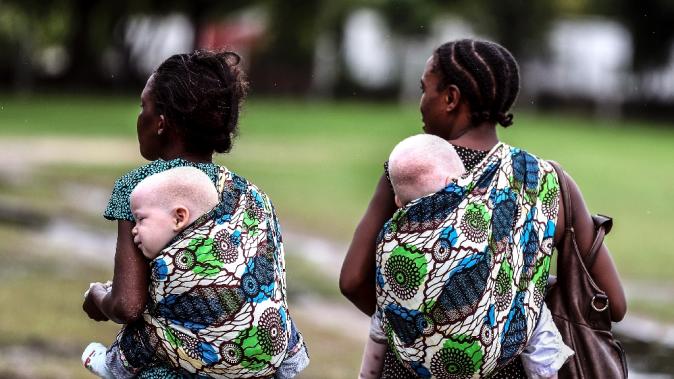Albinos gathered Friday in the Democratic Republic of Congo's capital Kinshasa for a first-of-its-kind festival to celebrate a minority that suffers rampant persecution in Africa.
"We want to reinforce the visibility of albinos in the upper spheres of society and create role models that allow parents of albino children to not feel ashamed," said Yan Mambo, an organiser of the "Proudly Albino" event.
Albinism is a hereditary genetic condition which causes a total absence of pigmentation in the skin, hair and eyes.
In addition to facing discrimination at school and work, albinos in countries like Burundi and Tanzania are sometimes killed for their body parts for use in witchcraft.
At least 76 albinos in Tanzania have been murdered since 2000, with their dismembered body parts going for around $600 (528 euros) and entire bodies fetching $75,000, according to United Nations experts.
At a workshop on Friday, albino women got pointers on starting their own businesses. Dolees, a 23-year-old hair stylist and aesthetician in training, told AFP she was proud of being albino and planned to open her own salon.
"I am elegant. I am beautiful. I have a nice size," she said. "God created me like this, why should I be hung up?"
As well as discrimination, risks associated with albinism include skin cancer -- expensive sun creams are often difficult to obtain -- as well as eyesight problems.
Instead of focusing on the negatives, the festival in Kinshasa aims to empower the group.
"We want to highlight excellence, because in Congolese society, there are nearly no elite ndundu," said Mambo, using a local word from the lingala language for albinos.
Prominent African albinos include Malian music legend Salif Keita who called this week for people with the condition to be protected, with fears rising over attacks in Tanzania
"It is completely unacceptable for humans to sacrifice other human beings, it comes from ignorance," the musician told AFP in an interview during a visit to East Africa.
Rights groups have warned of the risk of a rise in attacks against albinos in Tanzania, which has just begun campaigning for general and presidential elections on October 25.
Some politicians have been accused of buying albino body parts for witchcraft and lucky charms.
The Kinshasa festival, which includes lectures, awareness campaigns and a fashion show, wraps up Saturday with concerts and a march through the city.


No comments:
Post a Comment